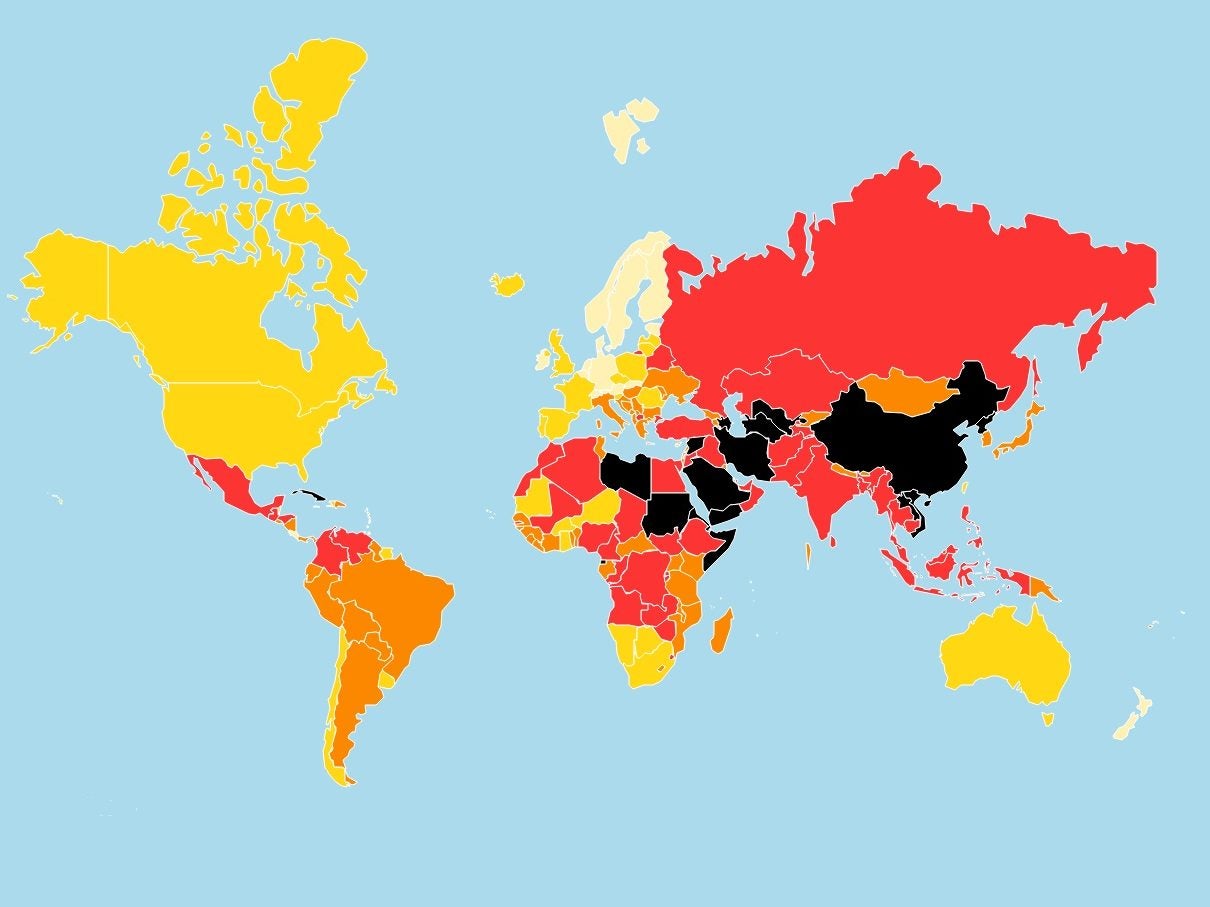
The UK is likely to slip further down the Reporters Without Borders (RSF) World Press Freedom Index when it is published next year, according to the charity’s UK bureau director, Rebecca Vincent.
She was speaking to Press Gazette ahead of the launch of the organisation’s first UK office in London next month.
The UK is currently ranked 38th out of 180 countries around the world on press freedom by Reporters Without Borders, which Vincent said is “not great for a democracy”.
She added: “I think it’s likely that the UK will slide further down the list when the new index is released next year. We should be really concerned about that downward trend.”
The charity, known internationally as Reporters sans frontières, has offices in ten other countries, including its Paris headquarters.
Vincent said that the UK is a good strategic location to help advance RSF’s global agenda of promoting press freedom.
But she said the UK also has its own challenges at present: “I’ve been surprised by how much of my time the UK has been taking up. There have been a number of particularly worrying press freedom developments here over the past couple of months”.
RSF has been working closely with Syrian journalist Zaina Erhaim, who had her passport seized by UK authorities at Heathrow airport in September, after it was falsely reported as stolen by the Assad regime. Last year, Erhaim was awarded the prestigious Reporters Without Borders Prize for her work training citizen journalists in Aleppo.
Vincent said: “We are concerned by the precedent this could set for other foreign journalists and activists travelling to the UK. Repressive regimes should not be able to manipulate our system to target critical voices here in the UK”.
RSF is also concerned about the Investigatory Powers Bill, also known as the ‘Snoopers’ Charter’, which was passed by Parliament earlier this month, and codifies a system of widespread digital surveillance powers for the state.
Vincent said: “The passage of this bill could effectively serve as a death sentence for investigative journalism in the UK. It lacks sufficient mechanisms to protect whistleblowers, journalists, and their sources. It also fails to require authorities to give advanced notice to journalists before hacking their devices.
“As the Don’t Spy on Us Coalition has said, this is the most extreme surveillance law in UK history. It’s also part of a global trend of erosion of press freedom and other civil liberties in the name of security.
“A similar law has recently been adopted in Germany. We are troubled by the possible knock-on impact these bills could have, as they could be used by repressive regimes as cover to pass similar legislation, but without the democratic checks and balances we have”.
Vincent said RSF also had concerns about implementation of Section 40 of the Crime and Courts Act 2013, which the UK Government has recently re-opened for consultation.
She said: “The cost-shifting provisions in Section 40 are particularly worrying as publishers who don’t sign up to a state-approved regulator could be held liable for the costs of all claims made against them, regardless of merit. This would be crippling for some publishers, and would have a serious chilling effect on free expression.”
Vincent noted that the future of the Human Rights Act also remains in the balance, as the UK government has threatened to repeal it. The Human Rights Act protects free expression under Article 10.
She said: “It all amounts to a worrying trend of moves against press freedom and broader human rights in the UK. This makes it a particularly important time for RSF to open its office here. Such moves don’t only impact the UK; they are part of a global deterioration in press freedom that must be addressed.”
This article was produced in association with Reporters Without Borders (RSF), which is a supporter of this year’s British Journalism Awards.
Email pged@pressgazette.co.uk to point out mistakes, provide story tips or send in a letter for publication on our "Letters Page" blog

